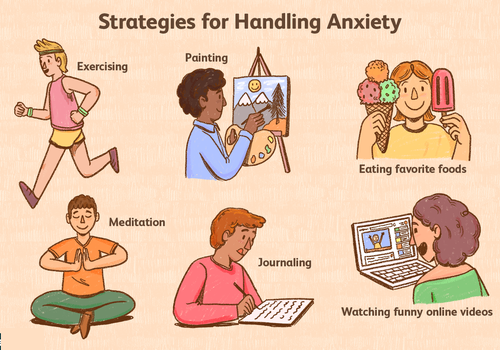By Sejal Sharma
Burnout, a term becoming increasingly prevalent in today’s hectic world, is a subtle challenge that may harm anyone, regardless of job or age. The term burnout can be defined as a state of physical, emotional, and mental exhaustion resulting from persistent stress, an excessive and demanding workload, or unreasonably high goals and demands.
Burnout may strike anyone in the unstoppable hunger and desire of success and productivity. Identifying signs and taking measures to address them is crucial for both your physical and mental well-being. Let’s develop a deeper understanding about symptoms and signs of burnout.

Let us develop a deeper understanding about symptoms and signs of burnout.
1. Physical Symptoms include
- Fatigue
- Headaches
- Muscle pain (tensed body parts like shoulder)
- Insomnia
- Weak immune system
2. Emotional Symptoms generally tend to involve
- Persistent irritability
- Decreased motivation
- A sense of detachment
- Feelings of hopelessness
3. Cognitive Symptoms might consist
- Reduced concentration and memory
- Difficulty making decisions
- Poor judgement
- Negative self-talk
4. Behavioural Symptoms in case of burnout might range from
- Isolation from work or social circles
- Procrastination
- Neglecting personal needs
- Increased consumption of alcohol or drugs

Burnout is a multifaceted phenomenon that results from a wide range of factors; it is not a condition that applies to everyone in the same way. Burnout is different for every person. Burnout causes can be broadly classified into several key areas:
Workload, Pressure, Deadlines And Stress
A heavy workload, schedule and important deadlines along with high levels of stress are one of the major factors contributing to burnout. Employees who tend work for extended periods without adequate rest and leisure time are more likely to burn out. Unrealistic expectations, whether self-created or established by others, can lead to a constant feeling of inadequacy and their un-fulfilment can lead to a feeling of unworthiness. Working in an atmosphere where individuals are always under pressure to meet deadlines, targets, or evaluation criteria for success can foster burnout.
Lack Of Control
Burnout can get worse when a person gets a sense of powerlessness or a lack of control and choice over one’s work. In simple words, when they are made to do more than their capabilities. They might feel trapped when there is no flexibility and unable to make meaningful decisions. Lack of clarity in job roles and responsibilities can lead to dissatisfaction and a sense of helplessness.
Not Enough Appreciation And Compensation
Many times, Individuals may feel discouraged and lose enthusiasm if they feel their hard work goes ignored or unacknowledged. In addition to this, receiving inadequate compensation for one’s efforts may increase the adverse outcomes of burnout.
Work-Life Balance – A Big Struggle
Work-life balance is vital for overall well-being. Burnout can be worsened by:
If too much emphasis is on work : Setting priorities for work all the time over one’s private life, activities of interest, and interpersonal interactions can lead to burnout.
Inadequate break : Individuals who lack sleep and have disturbed sleeping patterns and leisure time find it hard to regain their energy.
Not Getting Enough Support From People Around Us
Maintaining psychological and emotional wellness, one also requires socio-emotional support and good interpersonal relationships. In the absence of support, burnout can worsen.
Isolation is a sense of isolated at work or in one’s personal life may aggravate the signs of burnout. Burnout can be driven by not being able to express one’s concerns or seek support from co-workers or other people around us.

Understanding the root cause of burnout is an essential step towards dealing with this serious issue. It is important to realize that burnout is not solely the result of one individual but many reasons.
Here are a few suggestions for preventing burnout:
- Make time for self-care: exercise, nutritious meals, and adequate sleep.
- Set Boundaries: Learn to say no and create clear work-life boundaries.
- Seek Help: Seek guidance and emotional support from friends, family, or a mental health professional.
- Managing time effectively: Organizing tasks, putting the most important ones first, to use time management effectively.
- Frequently taking breaks throughout the day can help in feeling more energised and less tired.
- Reconnecting with activities that brings joy and calmness.
- Reduce stress by practicing mindful habits such as meditation and deep breathing exercises.
- Goals and plans should be re-evaluated by taking time and thinking about long-term goals and how they connect with a person’s overall well-being.

Addressing burnout is not a sign of weakness!
Instead, it reflects an individual’s perseverance and dedication to a healthier, happier and fulfilling life. Establishing the equilibrium that makes it possible for an individual to reach full potential without being subjected to this state of exhaustion and overwhelmness by taking a break and recharging oneself.



